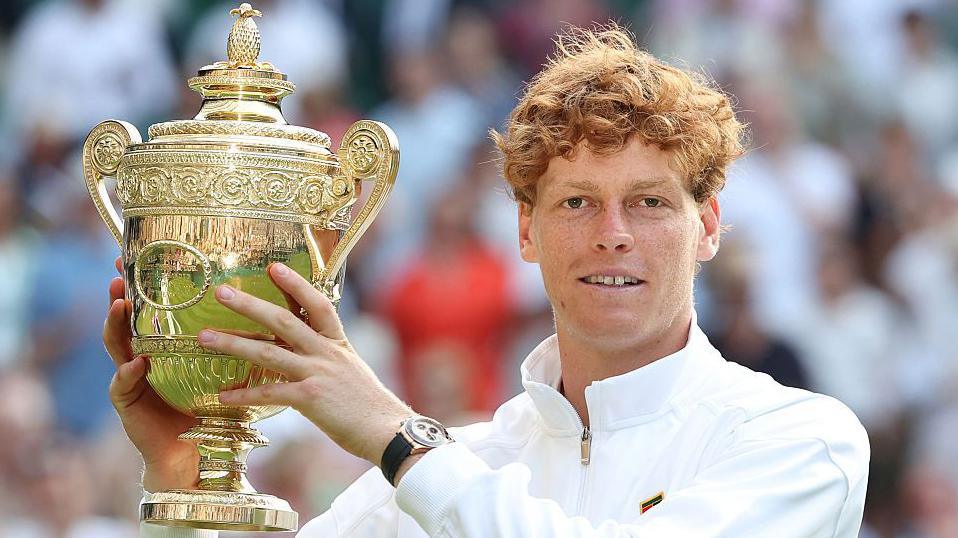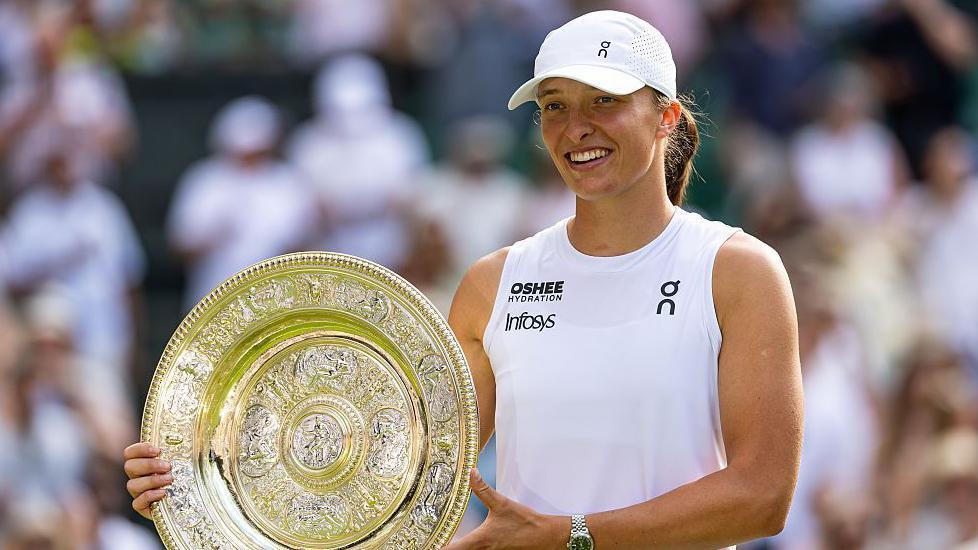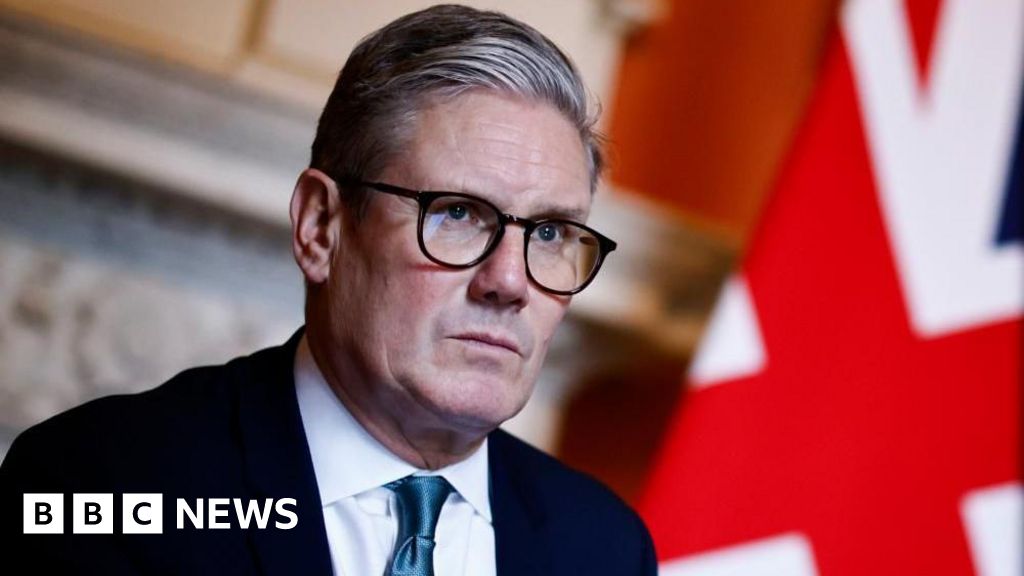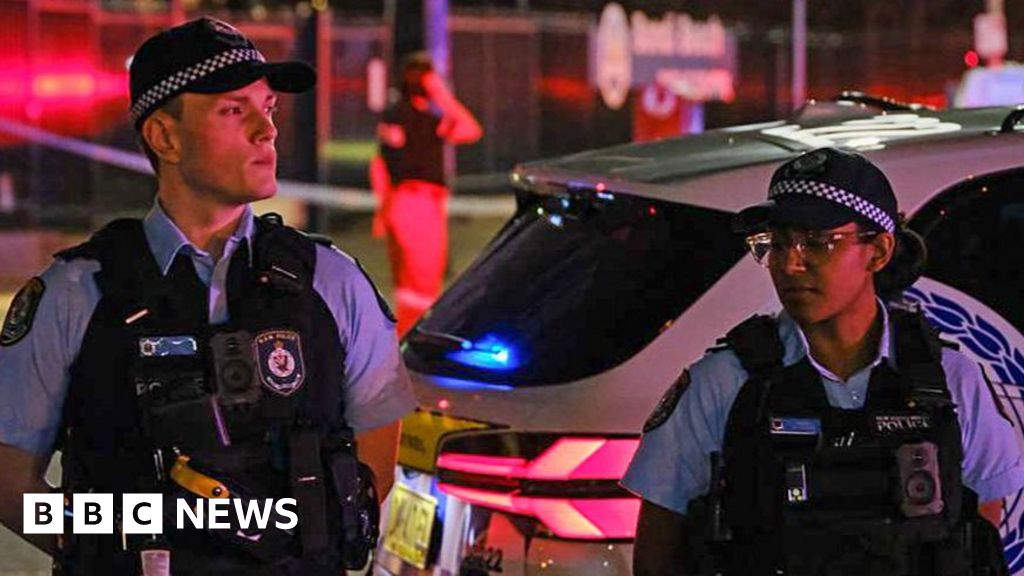 Image source, Getty Images
Image source, Getty Images
Sinner is now a four-time Grand Slam winner
Jannik Sinner says his and Iga Swiatek's singles title wins at Wimbledon were made "very special" following the doping cases involving them over the past year.
For the first time in Wimbledon history, both the men's and women's champions have served suspensions for banned substances, ensuring that their celebrations have been accompanied by controversy.
With the authorities accepting both players' insistence that the cases were caused by contamination of medication, many are clearly willing to look past the short bans.
But others are concerned about the impact it could have on the image of tennis.
"I don't think it's a good look for the sport," said Australian Nick Kyrgios, when previewing both Wimbledon finals.
Indeed, minutes after Sinner's victory on Sunday, the 2022 finalist posted a cryptic asterisk on social media, widely seen as a reflection of the mixed feelings some have about the men's world number one winning just over two months after completing a doping ban.
When asked by BBC Sport on Monday about those who may feel uneasy about him and Swiatek winning, Sinner said, "Well, me and Iga, we actually talked yesterday about this, and we've been celebrating in a way even more, because it was a very difficult time for her and also for me, and only me and my team and the people who are close to me know exactly how it went.
"There are always going to be some people who believe in you and [who] do not, but this is in everything. So yeah, in a way, it's very special, because it was very, very stressful the time on the last four or five months."
So, what were the details of their cases? How did it all get resolved so they could return to action so soon? How do players and officials feel about it? Does it detract from their achievements? And what does it mean for Wimbledon, and the sport more widely?
What happened with Swiatek?
 Image source, Getty Images
Image source, Getty Images
Swiatek's previous best performance at Wimbledon was reaching the quarter-final in 2023
The six-time Grand Slam winner tested positive for heart medication trimetazidine (TMZ) in an out-of-competition sample in August 2024, and served a one-month suspension, which ended in early December.
Commonly used to treat problems such as angina, TMZ increases blood flow to the heart and stimulates the metabolism of glucose, which can improve endurance, which is why it is a banned substance in elite sport.
Russian figure skater Kamila Valieva was given a four-year ban last year after testing positive for TMZ in a sample before she competed at the 2022 Winter Olympics.
Swiatek's level of fault was considered to be at the lowest end of the range, as the International Tennis Integrity Agency (ITIA) accepted it was caused by contamination of a regulated non-prescription medicine, manufactured and sold in Poland, which she said she took for jet lag and sleep issues.
What happened with Sinner?
Brilliant Sinner becomes first Italian Wimbledon champion
Sinner twice tested positive for low levels of the banned anabolic steroid clostebol - which can be used to build muscle mass - in March 2024.
As with Swiatek, authorities accepted it was caused by the use of an over-the-counter medication and he was cleared of any wrongdoing by an independent tribunal, with the ITIA deciding not to suspend him. It accepted he had been inadvertently contaminated by his physiotherapist, who was treating a cut on his hand with an over-the-counter spray, which was later found to contain the banned substance.
Significantly, however, the World Anti-Doping Agency (Wada) appealed against the panel's ruling that Sinner "bore no fault or negligence", and said it was seeking a ban of between one and two years.
A hearing at the Court of Arbitration for Sport (Cas) was set for April - but in February, shortly after retaining his Australian Open title, it was announced that Sinner and Wada had reached a controversial settlement, with the Italian then serving just a three-month ban.
It meant he did not miss any Grand Slam tournaments, and was back in time for the French Open, prompting accusations of favouritism, with some players openly questioning their faith in clean sport.
There have also been questions over why Sinner's former physio and trainer - who were both deemed responsible for the clostebol entering his system - could have made such a mistake, and why they have not faced any action from the authorities.
Why weren't longer bans issued?
Swiatek dominates Anisimova to win first Wimbledon title
Wada had felt the independent tribunal should have punished Sinner for strict liability - that he was ultimately responsible for failing the two drugs tests.
However, it also accepted that Sinner "did not intend to cheat", that the drug "did not provide any performance-enhancing benefit" and this happened "without his knowledge as the result of negligence of members of his entourage". On this basis, it was prepared to reach a settlement with Sinner, rather than go to Cas where the outcome would have either been a ban of at least a year or Sinner being cleared.
"This was a case that was a million miles away from doping," Wada's general counsel Ross Wenzel told BBC Sport.
Similar case resolutions have been allowed since 2021, and Wenzel said Wada had since struck 67 agreements. The code is set to change from 2027, meaning cases where players have failed tests but were deemed not to be at fault - like Sinner - could be punished from just a reprimand to a two-year ban.
In Swiatek's case, Wada did not appeal against her one-month suspension, claiming that its scientific experts "confirmed the specific contaminated melatonin scenario… is plausible and that there would be no scientific grounds to challenge it at Cas".
What was the reaction from other players?
In the wake of Swiatek's punishment, Simona Halep was one of several players who questioned the differences in how doping cases were treated.
In 2023, the Romanian had received a four-year ban for two anti-doping violations, later reduced to nine months after an appeal.
Reflecting on both cases in December, Kyrgios said: "I think people are trying to sweep it under the rug. I just think that it's been handled horrifically in our sport. Two world number ones both getting done for doping is disgusting for our sport. It's a horrible look."
In the wake of Sinner's suspension, former British number one Tim Henman claimed the ban was "too convenient" and left tennis fans with a "pretty sour taste".
"When you're dealing with drugs in sport it very much has to be black and white, it's binary, it's positive or negative, you're banned or you're not banned" he told Sky Sports.
"When you start reading words like settlement or agreement, it feels like there's been a negotiation and I don't think that will sit well with the player cohort and the fans of the sport."
Serena Williams said she would have been banned for 20 years and had some of her Grand Slam titles taken away if she had committed the same anti-doping offence as men's world number one Sinner.
British player Tara Moore, who was provisionally banned for two years while challenging a doping charge of which she was eventually cleared after 19 months, also suggested top players were "treated differently", with their image prioritised.
Accusations of preferential treatment were firmly disputed by the ITIA and Wada, but many believe both players have benefitted from being able to pay top lawyers to act quickly.
"A majority of the players don't feel that it's fair," said 24-time Grand Slam champion Novak Djokovic. "It appears that you can almost affect the outcome if you are a top player, if you have access to the top lawyers."
The Professional Tennis Players' Association (PTPA) - an organisation co-founded by Djokovic which aims to increase player power - said there is a lack of "transparency", "process" and "consistency" in the system.
Three-time Grand Slam champion Stan Wawrinka, writing on social media, said he did not "believe in a clean sport any more".
What has been the response to Swiatek and Sinner winning?
Former British number one Greg Rusedski seemed to speak for many in the sport when he told BBC Sport: "I think you have to give them the benefit of the doubt, look at the tennis they have played in this last year, and I think this will all go away in time."
Certainly there seemed little concern from those present at Wimbledon - or the millions watching and listening on - about the backstory of the pair of champions, with the focus on the quality of their play and the ruthlessness of their respective performances.
Perhaps this should come as no surprise, given that doping controversies are far from unusual in tennis. Indeed, fellow Wimbledon winners Halep, Maria Sharapova, Martina Hingis and Andre Agassi also all had positive drugs tests, albeit after winning the championship, rather than before.
"It's a little embarrassing for the sport and, by extension, for Wimbledon, it's a unique and unwelcome double" says public relations expert Tim Jotischky, of the PHA Group.
"However, the evidence suggests that fellow professionals are more upset than the viewing public… the Alcaraz-Sinner rivalry has captured the imagination of sports fans and, whilst Alcaraz is the more popular player, Sinner has never been targeted by spectators.
"That might be because many don't follow the sport closely enough to be aware of the details, but the main reason is probably because tennis still looks like a clean sport, where performance-enhancing drugs have a minimum impact, in a way that athletics and cycling often do not.
"Iga Swiatek's Wimbledon triumph followed a slump in form… that may have helped divert attention away from her ban.
"But tennis cannot be complacent or ignore the concerns of leading professionals. The rules around drugs offences need to be transparent and implemented consistently, regardless of a player's box office appeal."
The All England Lawn Tennis Club has been approached for comment.
.png)
 5 months ago
17
5 months ago
17








 English (US) ·
English (US) ·